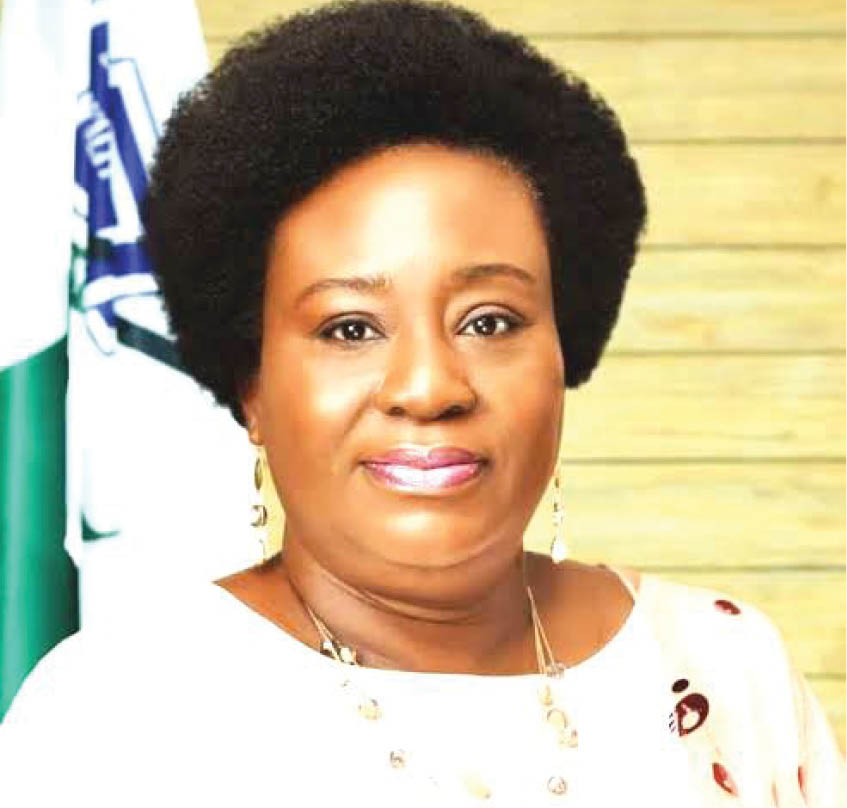The impact of the shock and disquiet generated by the recent unveiling of the revised Public Service Rules (PSR), which resurrected the tenure policy of the federal government for directors and permanent secretaries initially approved in 2009 reportedly to eliminate stagnation in the service is still being measured.
Late President Umaru Musa Yar’adua’s government in August 2009 introduced the tenure policy for directors and permanent secretaries reportedly to eliminate stagnation in the service.
The policy prescribed a term limit of four years for permanent secretaries and another term of four years (renewable once) for officers on directorate cadre.
However, the federal government suspended the policy on June 20, 2016 saying it had served its purpose.
The circular on the suspension reads in part: “We wish to reiterate that just like any policy of government, policies are supposed to be reviewed from time to time to find out if they have met the desired objectives. The government is reviewing the policy, along with other policies, in an effort to institute relevant and far-reaching changes to strengthen the civil service.”
The Nigerian billionaires and Tinubu’s Tax Reform
Insecurity preventing northern children from immunisation – Sultan
However, following an exclusive story by Daily Trust on the tenure policy of the federal government for directors and permanent secretaries in July 2016, the immediate past Head of Service of the Federation (HoCSF), Mrs Winifred Oyo-Ita, denied that the policy was annulled, saying government only suspended it.
The then Director of Communication of the HoCSF, Haruna Imrana Yazid, reacting to the Daily Trust report on the development, said it is not correct to say that there is ‘no going back on tenure policy reversal’ when he did not say so.
However, following the unveiling of the revised PSR, incumbent HoCSF, Dr Folashade Yemi-Esan also signed a circular to ensure compliance across the MDAs.
Dr Yemi-Esan, during a public service lecture, held in Abuja in commemoration of the 2023 Civil Service Week, said the implementation of the revised rules has commenced.
In what appears to be the institutionalisation of the tenure policy, the revised PSR has in its provisions, tenure system for permanent secretaries, who shall hold office for a term of four years and another renewable term based only on satisfactory performance.
Equally, in the revised rule, a director (GL 17) or its equivalent as may be prescribed by other MDA’s, shall compulsorily retire upon the attainment of eight years in that position.
Checks at the office of the Head of the Civil Service of the Federation and the Office of the Secretary to the Government of the Federation (OSGF), show that not less than 1000 directors across the country would be affected by the end of this year, by the policy having spent eight years in their positions, including those who would be caught up in the statutory 60 years of age or 35 years in service, whichever comes first.
The circular dated July 27, 2023 directed permanent secretaries, Accountant-General of the Federation, Auditor-General for the Federation, and Heads of Extra-Ministerial Department to ensure immediate compliance.
The development is expected to give room for more Deputy Directors (DDs) on GL16 to rise to the next level and the Assistant Directors (ADs) to rise to the DD level to clear backlog of promotion exercises largely stalled by non-availability of vacancies.
“Following the approval of the revised public service rules (PSR) by the federal executive council (FEC) on the 27th of September, 2021 and its subsequent unveiling during the public service lecture in commemoration of the 2023 civil service week, the PSR has become operational with effective from 27th July, 2023,” the circular reads in parts.
According to section 020009 of the revised PSR, the tenure limit for permanent secretaries is four years and another renewable term based only on satisfactory performance.
The rules also provide that a director (GL 17) or its equivalent as may be prescribed by other MDAs shall compulsorily retire upon the attainment of eight years in that position.
The Federal Ministry of Finance, Bureau of Public Procurement (BPP), OHoSF, are among those that have commenced the implementation of the policy issuing circulars to that effect.
In a circular dated July 27, Mariya Rufa’i, Director of Administration at the Federal Ministry of Finance, directed that all affected “are advised to commence the process of documentation with the admin. department for compulsory retirement by virtue of the section under reference.”
The policy is, however, generating tension and agitation, especially among the affected directors, with some of them who spoke to our correspondent, in confidence, saying it is in conflict with the mandatory 60 years retirement age for civil servants or 35 years in service, and which is also contained in the PSR.
Two of those affected said despite their being in their positions for eight years, they still have up to three and four years apiece to reach 60 years, which would come earlier than their spending 35 years in service.
According to PSR 020908, the mandatory retirement age remains 60 years or 35 years in service as the case may be with the exemption of judicial officers, and members of the Academic Staff Union of Universities, among others.
“The mandatory retirement age for all grades in the service shall be 60 years or 35 years of pensionable service, whichever is earlier.
“No officer shall be allowed to remain in service after attaining the retirement age of 60 years or 35 years of pensionable service, whichever is earlier.
“The provision of (i) and (ii) above is without prejudice to prevailing conditions of service for Judicial Officers, Academic Staff of Universities and other Officers whose retirement age is at variance with (i) and (ii) above,” the PSR stated.
But the same PSR in section 020909 stipulates that, “A director or its equivalent by whatever nomenclature it is described in MDAs shall compulsorily retire upon serving eight years on Tenure Policy on the post; and a permanent secretary shall hold office for a term of four years and renewable for a further term of four years, subject to satisfactory performance and no more.”
The policy under Buhari administration
The immediate past president, Muhammadu Buhari, on June 20, 2016, suspended the tenure policy for top federal officials, saying it had served its purpose.
The suspension was criticised by the proponents of the policy and some public servants who said they have been put at a disadvantage because many directorate staff who are due for retirement will now stay on.
Dr Goke Adegoroye, a retired pioneer director general/permanent secretary of the Bureau of Public Service Reforms (BPSR) had told Daily Trust then, in Abuja, that the tenure policy reversal will pave way for “ridiculous situations where assistant and deputy directors will end up retiring before their directors.”
He said, “We should find it curious that President Muhammadu Buhari has suspended the tenure policy which means a reversal of the gains made so far.”
Dr Adegoroye, who was the spokesperson of the Council of Retired Federal Permanent Secretaries (CORFEPS), also said, “The first obvious implication of the suspension is that it would reverse the gains made since the policy was introduced.
“The second effect is that the suspension would exacerbate the heinous act of records falsification currently permeating the service.
“This is because, unlike regular officers who, by their record of entering the service at 25 years of age and spending 27 years to attain the grade of director, would have their eight-year tenure on GL 17 co-terminate with their 60 years of age.
“Since their previous records of service were not known, they are able to manipulate those records to enable them to stay well below the retirement age ceiling. Such manipulation of record would compound not just the crisis of succession in the service but also the wage bill of government, as it loads the service at the top at the expense of renewal at the lower levels,” he said.
Daily Trust recalled that in October 2009, the two leading architects of the tenure policy for top federal civil servants, a former Head of Service, Stephen Oronsaye, and a former Federal Civil Service Commission (FCSC) chairman, Ahmed Al-Gazali, clashed over a proposal for pre-examination screening of candidates for the slots of retiring PS and directors.
Their differences, it was learnt, was due to the application of the policy with Oronsaye wanting immediate implementation and Al-Gazali preferring deferment.
Head of Service speaks
When contacted, the Director of Communications, Office of the Head of the Civil Service of the Federation (OHoCSF), Mallam Mohammed Ahmed, said there is no cause for alarm as all officers concerned are complying with the new directive.
He said, “There is no grumbling anywhere; those affected knew it was done in the interest of the Civil Service. There are some officers that said their being in position was different from when they were issued official appointment as directors. What would be required is for them to write to the appropriate authority on the matter.”
When asked on the fear of vacuum after the directors may have exit the service, the OHoCSF spokesman said that there are competent deputy directors and assistant directors who can carry on, in acting capacity, before substantive directors would be appointed.
“There are numerous directors awaiting posting in the OHCSF; there will be no vacuum, please. In addition, there are competent deputy directors and assistant directors who can carry on, in acting capacity, before substantive directors would be appointed.
“Let me also tell you that this policy was not new; it was there before it was suspended due to overall public interest. It is now being implemented in the interest of the Civil Service,” Ahmed said.




